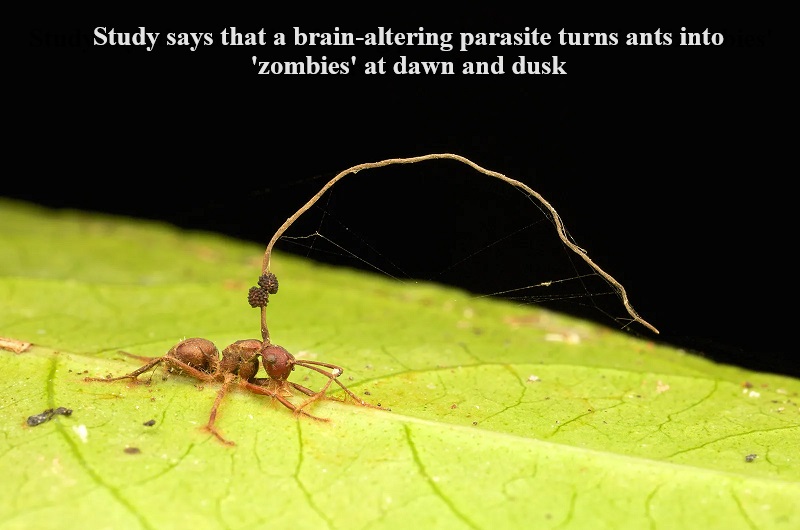
A recent investigation has revealed that a brain-altering parasite has the capacity to transform ants into “zombies” during the twilight hours of dawn and dusk. According to a study conducted by the University of Copenhagen and reported in Science Daily on a Sunday (September 17), this parasite, known as the liver fluke, seizes control of ant brains, compelling them to cling to the tips of grass blades where they become susceptible to consumption by cattle and deer.
The study outlines the liver fluke’s intricate and seemingly outlandish life cycle, commencing with the hijacking of the ant’s brain. It notes, “The unsuspecting ant climbs upward and affixes its formidable mandibles to the apex of a grass blade, increasing its chances of being consumed by herbivores like cattle and deer.”
Researchers from the University of Copenhagen’s department of plant and environmental sciences have discovered that the parasite’s manipulation of the ant is even more cunning than previously assumed. Remarkably, the parasite can induce the ant to descend back down the grass blade when the temperature becomes too high.
Associate Professor Brian Fredensborg, the researcher responsible for the study, emphasizes the intelligence behind this strategy: getting ants to position themselves high in the grass during the cooler morning and evening hours when cattle and deer typically graze, and then descending to avoid the scorching daytime sun.
To study this phenomenon, researchers tagged hundreds of ants in the Bidstrup Forests near Roskilde, Denmark. They affixed colored and numbered markers to the rear segments of the ants to enable long-term tracking.
The researchers closely observed the behavior of infected ants in relation to variables such as light, humidity, time of day, and temperature. The study uncovered a direct correlation between temperature and ant behavior, with ants being more inclined to attach themselves to grass blades when temperatures were low and descending as temperatures rose. Associate Professor Fredensborg humorously referred to this as discovering the “zombie switch” in ants.
When the liver fluke infects an ant, several hundred parasites invade its body, but only one reaches the brain, where it can exert influence over the ant’s behavior. The remaining flukes conceal themselves within the ant’s abdomen.

Post Your Comments